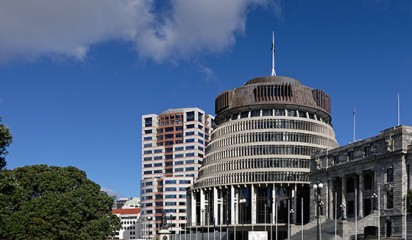Well nearly... New Zealand accedes to the Madrid Protocol on 10 December 2012.
What is the Madrid Protocol?
The Madrid Protocol (or The Protocol to the Madrid Agreement) is a procedural treaty
that establishes a centralised system for international registration of trade marks. New Zealand and Australia (as well as many other countries) are signatories to the Madrid Protocol.
How does the Madrid system work?
The Madrid system allows trade mark owners from member countries (known as Contracting Parties) to obtain trade mark protection in other member countries by filing a single international application.
Registration in every country is not automatic, national trade mark offices still examine applications according to their local laws, but the Madrid system simplifies the overall registration process and can reduce costs.
A trade mark owner using the system will end up with a bundle of rights consisting of an international registration and protection in one or more other designated countries.
Why would you use the Madrid system?
If you have a strong export focus or a strong retail presence overseas, then you will be familiar with protecting your trade marks around the world. Traditionally you would file separate trade mark applications in each country you trade in to obtain the protection you needed.
While you can still file separate trade mark applications in each country of interest, the Madrid system provides an alternative registration regime that can reduce your registration costs.
The individual needs of each business need to be carefully evaluated on a case by case basis to decide on the best option for your business. It is not a one-size fits all solution.
For further information on the Madrid system please go here.
One area where particular care is needed
Like with any system, there are advantages and disadvantages to its use and the Madrid system is no exception. But there is one area where particular care is needed and that is around searching the availability of a trade mark for use and registration.
For your key markets, searches will be very important. We have always stressed the importance of doing proper searches before using a trade mark in a new market, but the introduction of the Madrid Protocol into New Zealand will make searching even more vital.
Searches provide early identification of potential issues. They include the existence of third party rights in the same or a similar trade mark. Being aware of third party rights will enable a business, and their legal advisor, to consider and advise on ways to mitigate infringement, and other risks that may exist.
If an issue does arise, which is insurmountable, the cost savings the Madrid system offers will be lost.
For countries that are not your key markets, you might be prepared to file and see what response you get to the registration of your trade mark, recognising the risks involved with that strategy. If an issue arises during examination of your application by a national trade marks office, you might choose not to carry on with the application in that country and not incur any further cost.
After New Zealand accedes to the Madrid Protocol, it is expected that within the first year, some 7000-9000 international registrations designating New Zealand will be filed. Already over 18000 trade mark applications are filed in New Zealand currently each year.
Because of this increase, the ability to find a 'clear' trade mark will become increasingly difficult. Undertaking searches before adopting a trade mark for use and registration, not only in New Zealand but in overseas markets of interest, will become even more important.
Keeping an eye on competitor activity
It is expected that many businesses, who to date have shown little interest in New Zealand as a trade mark filing country, may start keeping an eye on their competitors. This is because little effort is involved other than inserting a '√' into the box marked New Zealand to start the process of obtaining a registration here. And the cost is fairly minimal.
New Zealand businesses therefore need to be aware of the potential for increased competitor activity in New Zealand.
We suggest setting up a watching search either in the names of specific competitors or for goods or services you are interested in so you are alerted to trade mark activity in New Zealand. That way you will be positioned to front foot any issues that have the potential to interfere with your business in New Zealand.
An edited version of this article was published in NZRetail magazine, issue 713.





